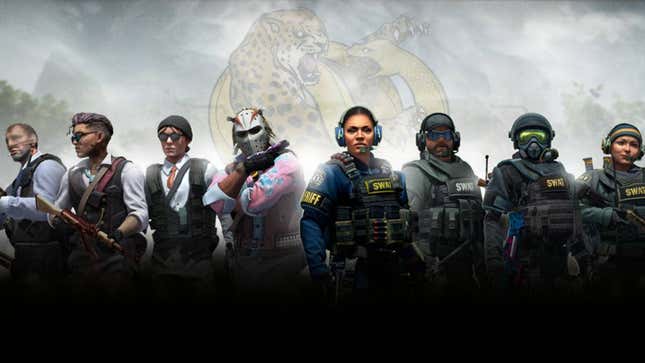
On January 7, a U.S. federal court dismissed the final lawsuit against Valve regarding the company’s alleged facilitation of what plaintiffs claimed amounts to illegal gambling in CSGO matches. This was the last case in a series of claims brought to the court by parents whose children had purchased CSGO skins for the purposes of betting with them.
Originally reported by PCGamer, the crux of the lawsuit hinged on whether or not the parents of underage gamblers were deceived by Valve. Among other things, the case argued that Valve had acted in violation of Washington state law by tricking the parents into giving their kids money for loot boxes, which the parents’ complaint argued were illegal gambling presented as a video game. The last suit was dismissed because the plaintiffs (the parents) never used Steam, and therefore, even if Valve had posted warnings or information about the nature of the loot boxes, the parents never would have seen it. As a result, the court ruled, they could not claim to have been misled by Valve.
Unregulated Counter-Strike: Global Offensive gambling on third-party sites has been around since at least 2015, and involves millions of dollars. Participants buy skins that they can use to bet on the outcome of matches, and many of them are minors. An earlier suit by Michael John McLeod noted that “Valve takes a percentage of the money from every skin sold.” So even if skins weren’t marketed or sold for gambling purposes, Valve still benefited from each sale of a skin that would be used for betting on matches.
According to district judge James L Robart, however, in this case, “The parents could not prove they had been deceived by Valve…[They have] never visited a Valve or Steam website, never used Steam, never played CS:GO, and never saw or read any representations from Valve about CS:GO, keys, or weapon cases.”
The lawsuit may have been more viable if the children had been the plaintiffs. However, they couldn’t sue because they had agreed to the Steam Subscriber Agreement, which is one of those long legal agreements that most people scroll past and never read. According to the agreement: “You and Valve agree to resolve all disputes and claims between us in individual binding arbitration…You understand that you and Valve are giving up the right to sue in court and to have a trial before a judge or jury.” A complaint was brought to arbitration over the matter, but the arbitrators ruled in favor of Valve, arguing that Valve had not encouraged the minors to engage in underage gambling.
Since the parents never directly participated in CSGO or the Steam Marketplace, they couldn’t prove that they had a business relationship with Valve. You know, despite being the source of the money that was being used to buy CSGO skins. The case was also hurt by the fact that the gambling took place on third-party sites that weren’t hosted by Valve, even though that doesn’t change the fact that Valve does benefit from the sales of skins used for gambling on those sites.
The case has been dismissed with prejudice, which means that the parents’ claims cannot be re-tried in court.